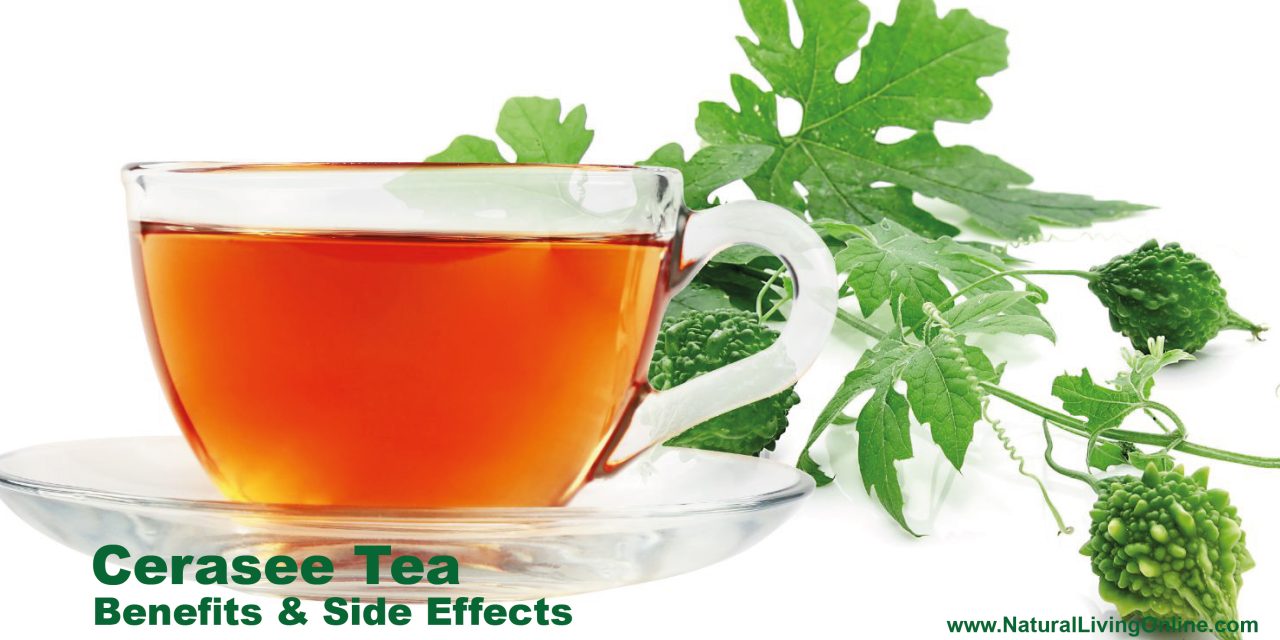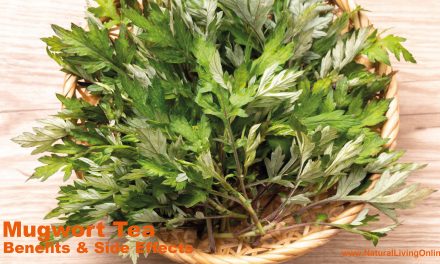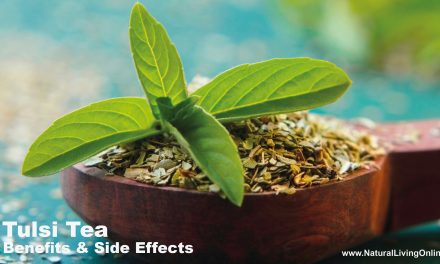Cerasee tea, also known as bitter melon tea, has a long history in traditional medicine across the Caribbean, Asia, and Africa. Made from the leaves of the momordica charantia plant, this tea is cherished for its numerous claimed health benefits. Cerasee tea is believed to help regulate blood sugar levels, support digestive health, and provide anti-inflammatory effects. Its potential to improve skin conditions and aid in weight management adds to its popularity.
While many tout the advantages of cerasee tea, it’s important to be aware of its side effects. Overconsumption of cerasee tea can lead to liver inflammation, so it’s recommended to use it for no more than nine days at a time. Always consult a healthcare professional before adding new herbal teas to your diet, especially if you have pre-existing health conditions.
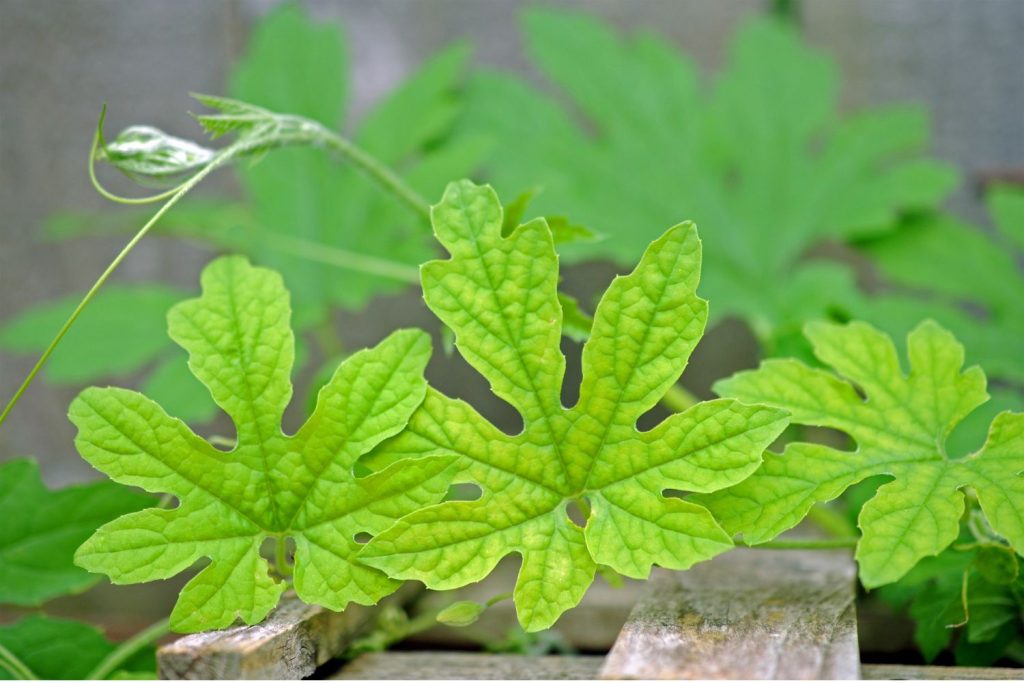
Key Takeaways
- Cerasee tea may help with blood sugar regulation and digestive health.
- Excessive use can cause liver inflammation.
- Consult a healthcare provider before incorporating cerasee tea into your routine.
Health Benefits of Cerasee Tea
Cerasee tea is known for its potential to support blood sugar regulation, reduce inflammation, detoxify the liver, aid in weight management, and improve skin health. These benefits are attributed to its rich content of antioxidants and beneficial phytochemicals.
Blood Sugar Regulation and Diabetes
Cerasee tea has been traditionally used to manage diabetes. It contains compounds that help regulate blood sugar levels. The tea has been shown to improve insulin sensitivity, which helps in lowering blood glucose. Regular consumption can be beneficial for people with type 2 diabetes. It’s important to monitor sugar levels and consult a healthcare provider.
Anti-Inflammatory and Antioxidant Effects
Cerasee tea is high in antioxidants like flavonoids and polyphenols. These compounds help reduce inflammation in the body. The anti-inflammatory properties can aid in the prevention of chronic diseases such as heart disease and certain cancers. Drinking this tea can support the immune system and overall health.
Detoxification and Liver Health
The tea is also known for its detoxifying properties. Cerasee tea is believed to promote liver detoxification and improve liver health. By enhancing the body’s natural detox processes, it helps in eliminating harmful toxins. This, in turn, can improve various bodily functions and overall vitality. It’s often used in traditional medicine for this purpose.
Weight Management
Cerasee tea may aid in weight management. The tea is low in calories and can help curb appetite, possibly leading to reduced calorie intake. It is also believed to affect metabolism, supporting weight loss efforts. For best results, it should be combined with a healthy diet and regular exercise.
Skin Conditions and Detoxification
Cerasee tea is also used for skin health. The antioxidants in the tea help combat free radicals, which can damage skin cells. It’s believed to help treat acne and other skin conditions by detoxifying the skin. Drinking or applying the tea topically can result in clearer skin and possibly reduce the signs of aging.
Nutritional Composition

Cerasee tea, also known as bitter melon tea, is packed with important nutrients.
Vitamins: It contains a variety of vitamins including vitamin C, vitamin A, and several B vitamins (B1, B2, B3, B9). These vitamins support the immune system, skin health, and overall bodily functions.
Minerals: The tea is rich in essential minerals like potassium, calcium, magnesium, phosphorus, zinc, and iron. These help in maintaining heart health, bone strength, and muscle function.
Antioxidants: Cerasee tea has significant amounts of antioxidants such as flavonoids and phenols. These antioxidants help in neutralizing harmful free radicals in the body.
Phytochemicals: The tea is also a source of various phytochemicals which are known for their potential health benefits. Phytochemicals may help in reducing inflammation and protecting against certain chronic diseases.
| Nutrient | Benefit |
|---|---|
| Vitamin C | Supports immune function |
| Vitamin A | Promotes good vision and skin health |
| Potassium | Regulates fluid balance and pressure |
| Magnesium | Supports muscle and nerve function |
| Flavonoids | Act as antioxidants |
| Phenols | Provide antioxidant and anti-inflammatory properties |
With its rich nutritional profile, cerasee tea can be a valuable addition to a balanced diet.
Preparation and Usage
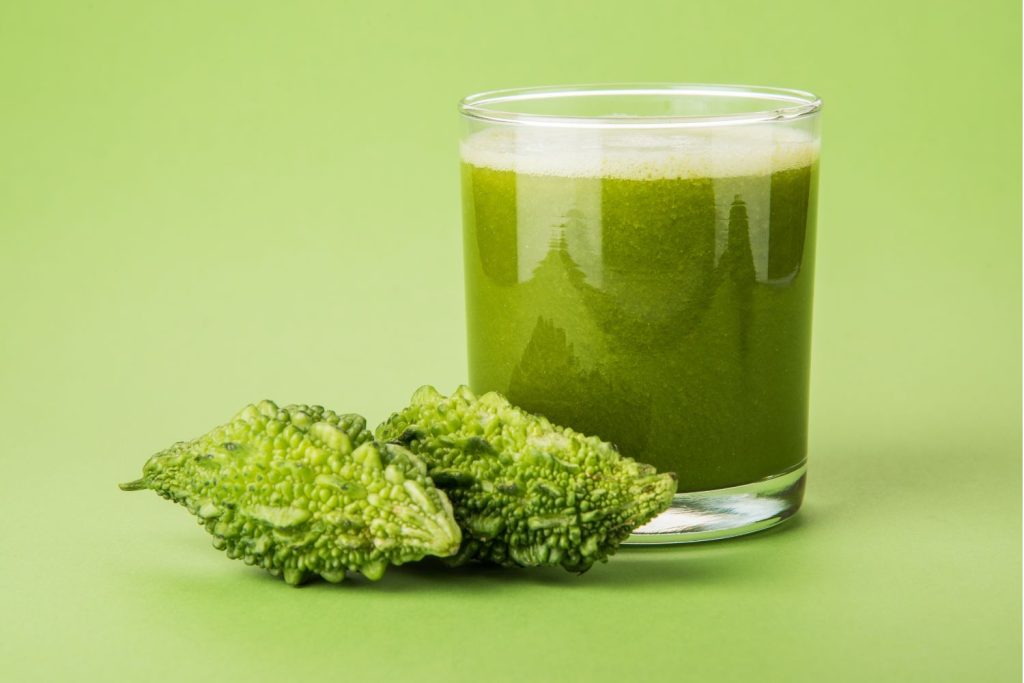
Cerasee tea is made by brewing the leaves or fruit of the bitter melon plant. It is often enjoyed with additions like lemon or honey to balance its bitter taste.
Brewing Techniques
To make cerasee tea, start by using dried cerasee leaves or fruit slices. You can also find ready-made cerasee tea bags at many health stores.
Boil water and pour it over the leaves, fruit slices, or tea bag. Let it steep for about 5-10 minutes, depending on how strong you like your tea. Remove the leaves, fruit slices, or tea bag after steeping.
What you need:
- 1-2 teaspoons of dried cerasee leaves or fruit slices, or 1 tea bag
- 1 cup of boiling water
Steps:
- Place the cerasee leaves, fruit slices, or tea bag in a cup.
- Pour the boiling water over it.
- Steep for 5-10 minutes.
- Remove the leaves, fruit slices, or tea bag.
- Enjoy your tea.
Serving Suggestions
Cerasee tea has a naturally bitter taste. Some people prefer to drink it plain, but you can also enhance the flavor with a few simple additions.
Adding a slice of lemon or a spoonful of honey can help make the tea more palatable. These additions not only soften the bitterness but also add extra nutrients.
For those who enjoy a slightly sweeter tea, a small amount of sugar or stevia can be used. Another popular option is to serve the tea chilled, especially during hot weather. Simply prepare the tea as usual, let it cool, and then refrigerate it until cold.
Suggestions:
- Add lemon or honey for taste.
- Serve hot or chilled.
- Sweeten with sugar or stevia if desired.
These simple adjustments can make your cerasee tea experience more enjoyable and suit your personal taste preferences.
Possible Side Effects and Precautions
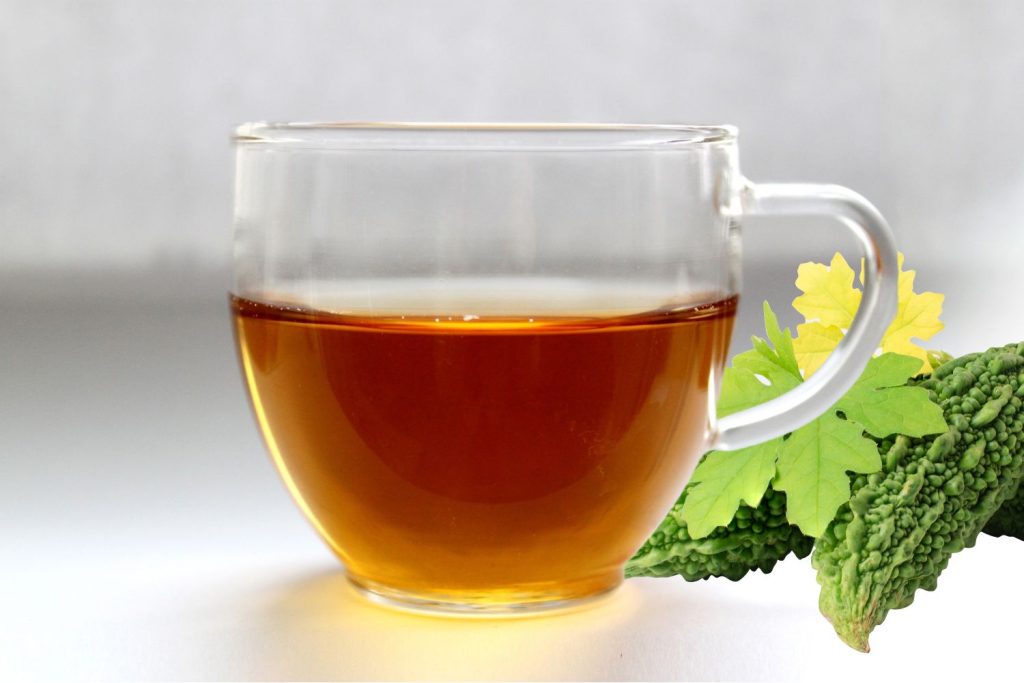
Cerasee tea, while beneficial in many ways, can have certain side effects and risks. It’s especially important to consider its impact on pregnancy, the effects of overconsumption, and the need for consultation with healthcare professionals.
Effects on Pregnancy
Pregnant women should avoid cerasee tea due to potential risks. The tea can cause uterine contractions, which may lead to abortion. These effects can be harmful in early and late stages of pregnancy.
Please note:
- Uterine contractions may induce menstruation.
- The risk of complications can increase with higher consumption levels.
Using cerasee tea during pregnancy is not considered safe. Discussing any herbal tea consumption with a healthcare provider is strongly advised.
Risks of Overconsumption
Drinking too much cerasee tea might lead to several health issues. Overconsumption can result in abdominal pain and diarrhea. In severe cases, it may cause irregular heart rhythms.
Health risks include:
- Liver damage: Regularly drinking large amounts can harm the liver.
- Low blood sugar (hypoglycemia): This risk is heightened in individuals taking medications for diabetes.
Moderation is crucial to avoid these side effects. A limited intake can help prevent adverse reactions.
Consultation with Healthcare Professionals
Consulting with a healthcare professional before including cerasee tea in one’s diet is essential. This advice is particularly important for those with existing health conditions or those on medications.
Why consultation is important:
- Interactions with drugs: Cerasee tea can negatively interact with insulin and other medications.
- Safety considerations: Identifying any pre-existing conditions that could worsen with cerasee tea intake.
Speaking with a healthcare provider ensures that including cerasee tea in the diet is safe and appropriate for one’s specific health needs.
Frequently Asked Questions
What is Cerasee Tea?
Cerasee tea, also known as bitter melon tea or bitter gourd tea, is made from the Momordica charantia plant. This traditional remedy is popular in the Caribbean and Asia for its potential health benefits.
What are the benefits of Cerasee Tea?
- Blood Sugar Regulation: Helps manage blood sugar levels in people with diabetes.
- Antimicrobial and Antiviral: Strengthens immunity and fights infections.
- Digestive Health: Eases constipation and diarrhea.
- Skin Health: Treats eczema, acne, and other skin conditions.
- Detoxifying Properties: Cleanses the liver and removes toxins.
What are the side effects of Cerasee Tea?
- Low Blood Sugar: Overconsumption can lead to hypoglycemia.
- Bitter Taste: The tea has a naturally bitter flavor.
- Pregnancy Concerns: Pregnant women should avoid it due to potential for causing contractions.
- Gastrointestinal Issues: May cause stomach pain or diarrhea if consumed in large amounts.
How do you make Cerasee Tea?
- Boil water.
- Add fresh or dried leaves/stems of the cerasee plant.
- Steep for 10-15 minutes.
- Strain and optionally add lemon or honey for taste.
Can Cerasee Tea help with detoxification?
Yes, cerasee tea is known for its detoxifying properties, aiding the liver in removing toxins and improving overall health.
Is Cerasee Tea safe for everyone?
Consult a healthcare professional, especially if pregnant or suffering from any chronic diseases. Also, individuals with low blood sugar levels should be cautious.
What conditions can Cerasee Tea help with?
- Diabetes: Supports blood glucose level management.
- High Blood Pressure: May lower blood pressure.
- Skin Conditions: Helps with acne and eczema.
Frequently Asked Questions
What are the potential health benefits of consuming cerasee tea?
Cerasee tea is known for its antioxidant properties that help combat free radicals in the body. It also has anti-inflammatory effects, blood sugar regulation capabilities, and may support digestive health. Additionally, it has been reported to have antimicrobial and antiviral properties that could strengthen immunity.
Can drinking cerasee tea promote better skin health?
Yes, cerasee tea is believed to aid in skin health. Consuming the tea may help with conditions like acne due to its detoxifying effects. The antioxidants in the tea can also benefit the skin by reducing inflammation and promoting overall skin health.
Are there any notable side effects associated with the use of cerasee tea?
While cerasee tea has many benefits, it also comes with potential side effects. Prolonged use can lead to liver inflammation. Additionally, the tea can interact with medications such as insulin, potentially causing severe hypoglycemia. It is advisable to consult with a healthcare professional before adding it to your diet.
How frequently should cerasee tea be consumed for optimal benefits?
There isn’t a standard guideline for how often cerasee tea should be consumed. Generally, moderation is key. Consider drinking it a few times a week rather than daily. Always watch for any side effects and consult a healthcare professional to determine the right frequency for your specific health needs.
Is there any research supporting the use of cerasee tea for detoxification purposes?
Yes, research indicates that cerasee tea may help with detoxification due to its antioxidant properties and ability to cleanse the blood. This may contribute to overall body detoxification and improved organ function, particularly the liver and kidneys.
What are the considerations for drinking cerasee tea during pregnancy?
Pregnant women should exercise caution when drinking cerasee tea. Limited research on its effects during pregnancy suggests that it may pose risks. It is crucial to consult with a healthcare provider before consuming cerasee tea while pregnant to ensure it is safe for both the mother and the baby.
References:
Cerasee, a traditional treatment for diabetes. Studies in normal and streptozotocin diabetic mice
This website does not provide medical advice.
All information provided on this website, and on associated social media networks, including but not limited to texts, images, and numbers are for general information purpose only. It is not intended as medical advice and it does not include all possible precautions, side effects, or interactions that may occur. Neither NaturalLivingOnline.com nor its author/founder take responsibility for how you use this information. Statements contained on NaturalLivingOnline.com have not been evaluated by the FDA. You should conduct thorough research via multiple sources and consult your physician or qualified doctor before using any essential oil or herbal remedy. Information on NaturalLivingOnline.com must not be relied upon for medical, legal, financial or other decisions.

